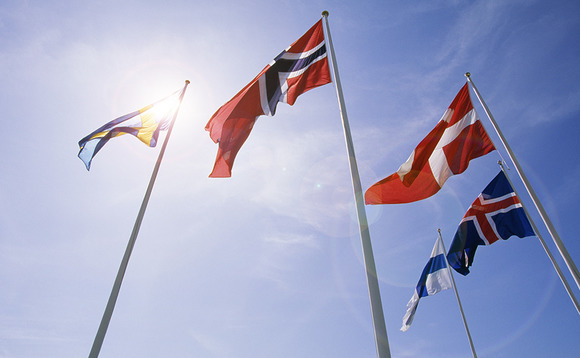
Nordic buyout market has silver linings, despite low volume

The Nordic region recorded a lacklustre quarter for deal activity at the start of 2020, which will only be compounded by the coronavirus pandemic. But the region's well-established tech ecosystem should stand it in good stead. Katharine Hidalgo reports
The Nordic region has seen the lowest quarterly deal volume since Q4 2013, with just 17 buyouts in Q1 2020. The weak quarter follows a year of slow activity, with a decline in the number of buyouts from a high of 142 in 2018 to 125 in 2019.
Other types of investments, including venture and growth equity deals, have held up better in the first quarter, with 32 deals overall, although this number is down from 50 in the preceding quarter and 47 in Q3 of 2019.
The coronavirus outbreak is likely to be a factor in the decline, and market participants agree that dealflow will suffer further. In addition, fundraising is likely to be adversely affected in the long term. Frida Einarson, head of investor relations at Verdane, says: "We hear in the market that those funds that are already raising or were scheduled to launch now are pushing ahead, more or less according to their original timetables, whereas some who were about to launch later this year are delaying."
The European Central Bank has already launched an emergency €750bn package to buy government and company debt across the eurozone. Funding packages to support the economy from the various governments in the Nordic region have also been announced. They principally come in the form of loans and guarantees for companies, and packages dedicated to assuming the cost of sick leave or salaries for individuals.
Funds that are already raising or were scheduled to launch now are pushing ahead, more or less according to their original timetables" – Frida Einarson, Verdane
These financial measures illustrate a substantial commitment to shoring up the economy and minimising the damage caused by Covid-19 on Nordic economies.
Head start
In addition, there are a number of reasons why Nordic-focused GPs can be slightly more positive about the outlook in the region in comparison with other European economies.
Einarson says: "Many of the trends we are seeing as relevant in this crisis, such as distance working, the shift from offline to online, teleconferencing and moving to software-based solutions, will be accelerated over the coming months. The Nordic region is already far along the road in terms of tech-enabled companies in comparison with the rest of Europe."
Anders Misund, partner and head of Nordic at EQT, agrees: "The Nordic region continues to be at the forefront of applying technology globally, which we believe will continue to drive the development of high-quality companies that can take their leading positions abroad."
He also points to the venture ecosystem of the region. He says: "Stockholm is one of Europe's main hubs for startups where EQT, through our 'local with locals' approach, invests to scale companies across Europe and globally. Technology and TMT continue to be a core part of EQT's private equity portfolio, and we continue to see a number of opportunities in the sector."
While the volume of technology buyouts has experienced a plateau in recent years, with 30 deals in 2017, 28 deals in 2018 and 30 in 2019, technology firms still make up a large proportion of portfolio companies in the region. On average, 6% more technology buyouts have occurred annually than the European average during the past five years. This does not include those companies that are technology-enabled, such as online retailers, all of which are likely to perform better than the traditional retail sector in the current climate.
Verdane's Einarson says: "You have to be really specific to find growth in these times and we are already looking at those sub-pockets of growth, like the offline to online shift, the move to cloud-based software and, more generally, the push towards a more sustainable society. We do have businesses such as online grocery store Mathem and online pharmacy Komplett.no that have obviously seen a surge in demand."
Another area where the private equity industry might benefit is an expected decline in vendors' price expectations. Frothy pricing has been a characteristic of the Nordic market for some time, with the average entry multiple reaching more than 11x EBITDA since Q3 2018 on Clearwater International's Multiples Heatmap – the highest multiples in Europe.
Einarson says: "In times of great uncertainty, we have experienced in the past that it is harder for buyers and sellers to find a clearing price."
However, market participants expect the flight to quality that has been present in the market for some time now to continue amid the current market conditions. The trend has previously seen high-quality assets sell quickly and for high valuations, while lower-quality assets may sell slowly or not at all.
Latest News
Stonehage Fleming raises USD 130m for largest fund to date, eyes 2024 programme
Sponsor acquired the public software group in July 2017 via the same-year vintage Partners Group Global Value 2017
Stonehage Fleming raises USD 130m for largest fund to date, eyes 2024 programme
Czech Republic-headquartered family office is targeting DACH and CEE region deals
Stonehage Fleming raises USD 130m for largest fund to date, eyes 2024 programme
Ex-Rocket Internet leader Bettina Curtze joins Swiss VC firm as partner and CFO
Stonehage Fleming raises USD 130m for largest fund to date, eyes 2024 programme
Estonia-registered VC could bolster LP base with fresh capital from funds-of-funds or pension funds









